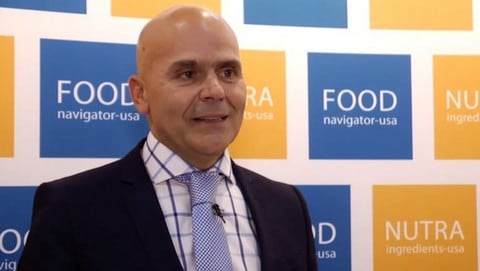These two factors would ultimately help raise the bar of the industry in the minds of consumers, said panellists at a recent discussion chaired by NutraIngredients-Asia at the Vitafoods conference in Hong Kong.
Dr Siti Abdul Malek, head of science and regulatory affairs at Food Industry Asia and the ASEAN Food & Beverage Alliance, said the functional nutrition industry was thriving in Asia, experiencing double digit growth in the past five years.
She also said the double burden of malnutrition and obesity, alongside hidden hunger among the region’s large migrant workforces, meant that demand and the need for such products would only get greater.
“The advance of social media in this region also means that health issues are gaining popularity with millennials, so I think the popularity of functional foods and functional ingredients will only grow in the coming years,” she said.
However, she warned that these internet-savvy consumers would not be duped into taking dubious health claims at face value.
“I want to stress the importance of strong, solid science if functional foods and supplements are to have more success in Asia,” she said.
“Millennials are very internet savvy. They know about the products you are selling and get can all the information they want about them.
“There are some products that have multiple claims for one single product. The question has to be: can you validate those claims? One ingredient may provide a substantial difference in one respect, but when you try adding multiple ingredients to try and market it as a super product that can cure 1000 illnesses, that is a bit ridiculous.”
More than marketing
This means the industry needs to police its own members to make sure these kinds of marketing practices are controlled.
“When consumers stop believing in one product, it can affect the whole industry,” she said. “Claims need to be based on science, not just marketing.”
Fellow panellist George Paraskevakos, executive director of the International Probiotic Association, said the industry had to raise the bar among regulators, as well as consumers.

“Transparency, education and credibility are very important for consumers, but at the same time, we find education is as equally important for the regulators.
‘Government departments that are setting regulations and guidelines, from the probiotic perspective, sometimes don’t know the impact of the type of regulations they are setting,” he said, pointing to the situation in Europe where the European Food Safety Authority (EFSA) is yet to approve a health claim for any probiotic product.
“I don’t remember how many health claims applications there have been in Europe, but not one has been approved because they keep coming back and saying the research isn’t sound. Now you cannot say that companies are not spending millions of dollars to prepare pharma-like dossiers, but they are still not being approved.”
All the panellists, including Dr Zhang Weiguo, director of nutritional science and advocacy at DSM in China, agreed that a greater degree of regulatory harmonisation was required in Asia.
Influence authorities
Dr Zhang pointed to the differences between China and Taiwan in making claims for products that can lower blood pressure as a classic example.
“The bar is too high in China for a functional food that helps lower blood pressure (it has to lower systolic pressure by 20), so you will never find a product for it in the market,” he said, adding it was difficult enough for a pharmaceutical product to be able to make that claim.
“On the other hand, the [criteria] in Taiwan is lower, so it is easier for the industry. Somehow we have to set the bar lower in China so consumers can get the benefit,” he said.
“Whenever we have an opportunity we try and influence the authorities and the experts linked to them to help them establish new regulations or revise existing ones.”
Dr Abdul Malek said some aspects of the regulatory framework in Singapore could be appropriate for other nations as they look to build their systems, even if the rules in the city state are sometimes “very strict.”
“In Singapore, the Singapore Manufacturing Federation actually draws up the suggested standards with its members which are then sent to the regulators to be reviewed. This means the regulations are looked at and revised more quickly and come into force in a shorter space of time. Singapore has a very strict, but very good system, because it works well with industry,” she added.

